“No One Wins on a Dead Planet”: A Former UN Climate Chief Loses Faith in Fossil Fuel Companies
At COP28, Christiana Figueres, the architect of the Paris climate agreement, said people must balance outrage and optimism.
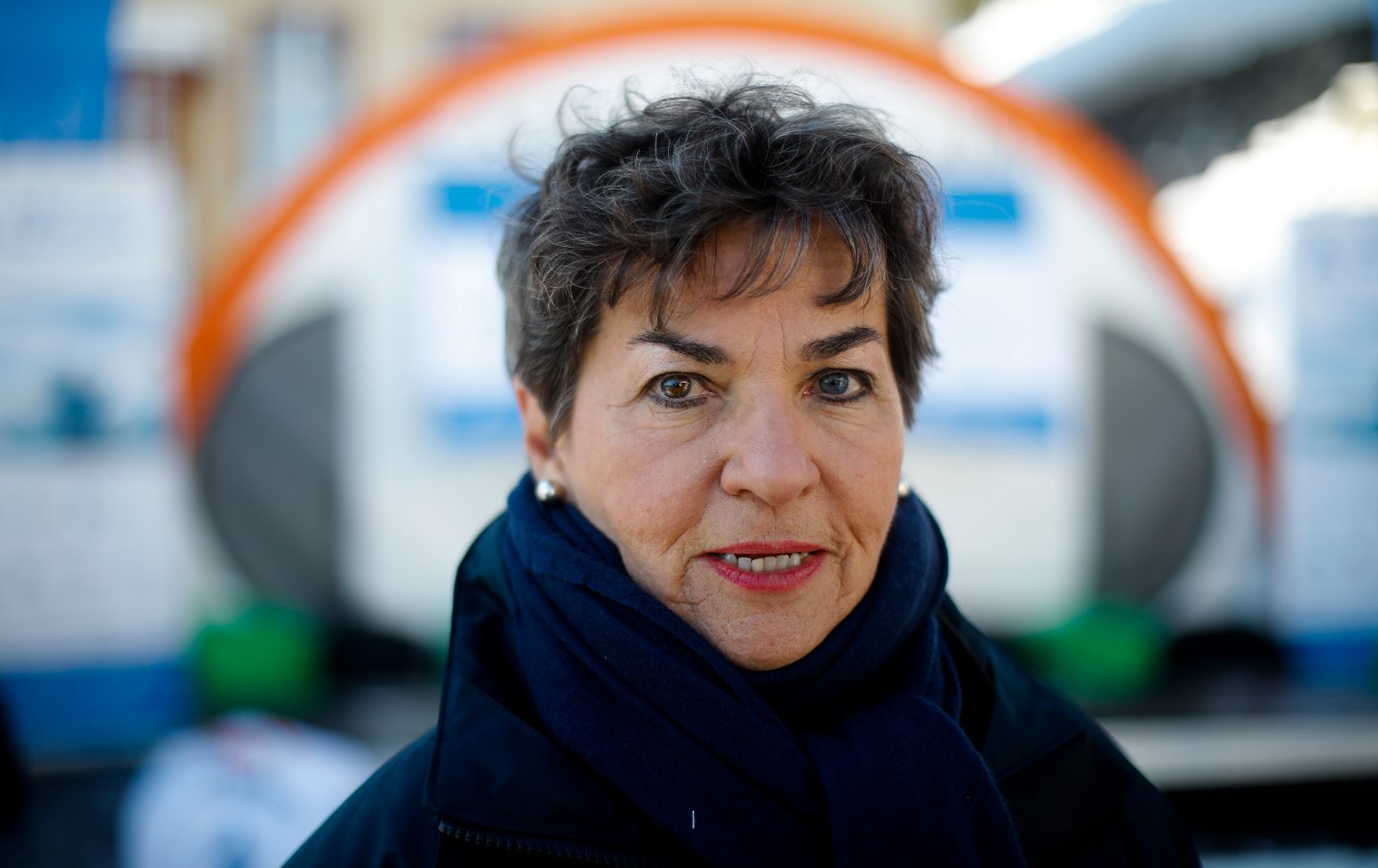
People must balance outrage and optimism after a “hellish summer” of extreme weather, the UN’s former climate chief has urged at the start of the COP28 climate summit.
“We have to keep the outrage really high because we are so darn late,” said Christiana Figueres, a veteran negotiator hailed as the architect of the Paris climate agreement. She pointed to the weak policies that governments have set to cut planet-heating pollution and the $7 trillion with which they directly and indirectly subsidize fossil fuels.
But there are reasons for optimism that can stop people falling into “a dark rabbit hole,” she added. “I do make a conscious choice every morning to say, ‘Yes, I know what all the bad news is’—that’s easy to get because that just screams at you from whatever newsfeed you have—but also, what is positive that is going out there? What are the disruptive pieces that are real, strong evidence of the fact that this is changing?”
Speaking to a small group of reporters on Monday, Figueres highlighted the plummeting cost of renewable energy and the growth of electric cars as two areas where positive changes are happening faster and faster.
But we are getting “horribly close” to tipping points, even if they have not become our destiny, she added.
Figueres, a Costa Rican diplomat who started working on climate in the mid-1990s, said that she feels moments of hopelessness, helplessness, and depression every day but that “it is not my dominant feeling and certainly not my dominant energy.”
“The moment that we give up and say, ‘OK, we’re doomed, we’re going above 1.5 C, I’m just going to crawl into my little cubbyhole and pull my blankets over my sheets’—then we have a self-fulfilling prophecy, for sure. Our responsibility here is to understand the threat and do everything within our power to avoid it.”
Her comments come as world leaders meet in Dubai for the 28th UN climate summit. At a previous summit in Paris in 2015, when Figueres was head of the UN body that oversaw the conference, governments signed a legally binding treaty to stop the planet heating 2º C above pre-industrial temperatures by the end of the century, and ideally 1.5º C. But in the eight years since, world leaders have continued to push policies that will clog the atmosphere with more carbon than many people and ecosystems can handle.
This year’s summit is hosted by the UAE, a major oil and gas producer. The COP28 president, Sultan Al Jaber, is the boss of the UAE’s national oil company, which plans to expand production of fossil fuels. Al Jaber and his supporters have argued that the industry is an important partner that deserves a seat at the table.
Figueres said that for many years she championed a similar attitude because fossil fuel companies have some of the deepest pockets and most skilled engineers. But her faith in them has waned since Russia’s invasion of Ukraine and the spike in energy prices that followed. Oil and gas majors that marketed themselves as part of the solution to climate change have used windfall profits to further enrich shareholders, while cutting their spending on renewable energy.
“That is unforgivable,” said Figueres. “I did lose, sadly, my hope with oil and gas companies because of the evidence that came forward over the past 12 to 24 months. Would we be in a much better position if they decided to invest their unparalleled engineering skill and their deep wallets to the solution space? Absolutely. Are they doing that? No.”
On Monday, the BBC revealed that the UAE has planned to use its role as the host nation to strike oil and gas deals during the conference, a claim the UAE has denied. In a post on X, formerly Twitter, Figueres said the COP presidency had been “caught red-handed” and called for more transparency and accountability.
Climate activists have criticized previous COPs because the deals struck have been far removed from what scientists have shown is needed to stop the climate from changing. It took 25 summits before governments were willing to name a fossil fuel in their concluding statement.
Figueres said there was a danger of people expecting results from the process that it had not been designed to deliver.
Popular
“swipe left below to view more authors”Swipe →“The COP was designed, and I say this because I was there and contributed to the design, the COP was designed to deliver multilateral agreements of all national governments coming together. To put guardrails, if you will, or to write a global business plan or whatever equivalency you want to use for the decarbonization of the economy.”
That task has been “substantially finished,” she said, though many important issues concerning money remain. But in terms of cutting emissions, “it is now time to move that on to national scale efforts and corporate efforts. That is where action needs to take place.”
Figueres also defended the COP process and the Paris agreement for not punishing governments that do not comply with their promises to stop the planet heating.
“Let’s just remember that we don’t have such a thing as an environmental police in the world,” she said.
When Canada failed to comply with the Kyoto protocol—an earlier treaty to cut greenhouse gas emissions that included fines for failure—Figueres received “a little note” from the then–prime minister saying he was taking his country out of the treaty. “There’s no point in having punitive measures in an international legal system that respects the sovereignty of all governments,” she said. “That will never change.”
But she added: “What leads to further action, frankly, is the realization that it is in enlightened self-interest to do the right thing. That is what led to the Paris agreement: When all countries realized, ‘Who’s going to win from a dead planet? No one wins from a dead planet.’”
More from The Nation

What Comes After the Apocalypse? A Q&A With Joshua Oppenheimer What Comes After the Apocalypse? A Q&A With Joshua Oppenheimer
Oppenheimer’s latest film, The End, is a Golden Age, postapocalyptic musical crying out from the depths of the earth.
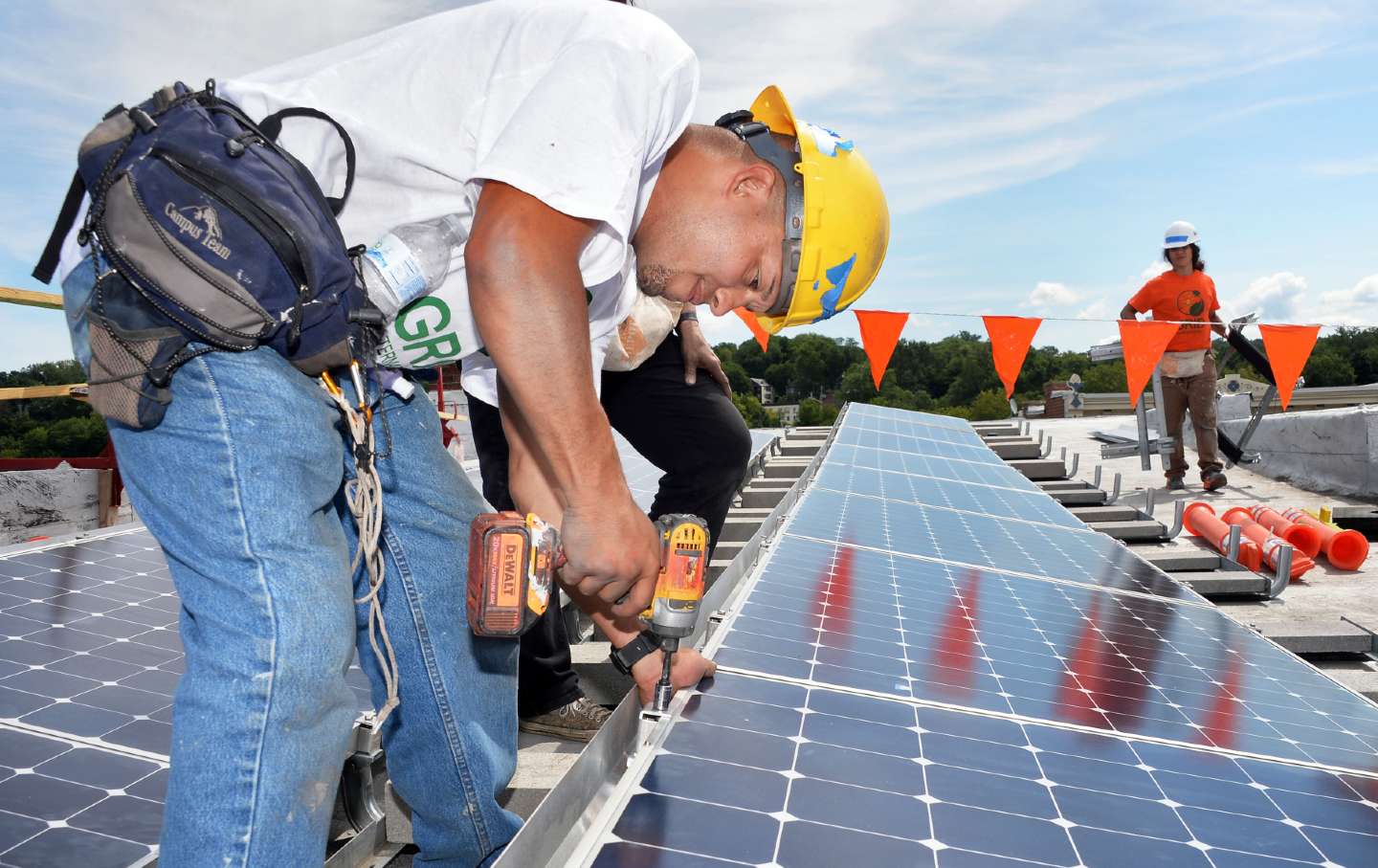
This Solar Panel Kills Fascists This Solar Panel Kills Fascists
New York’s Build Public Renewables Act will reduce carbon in the atmosphere, combat inequality, and help workers. It might also defeat Trumpism.
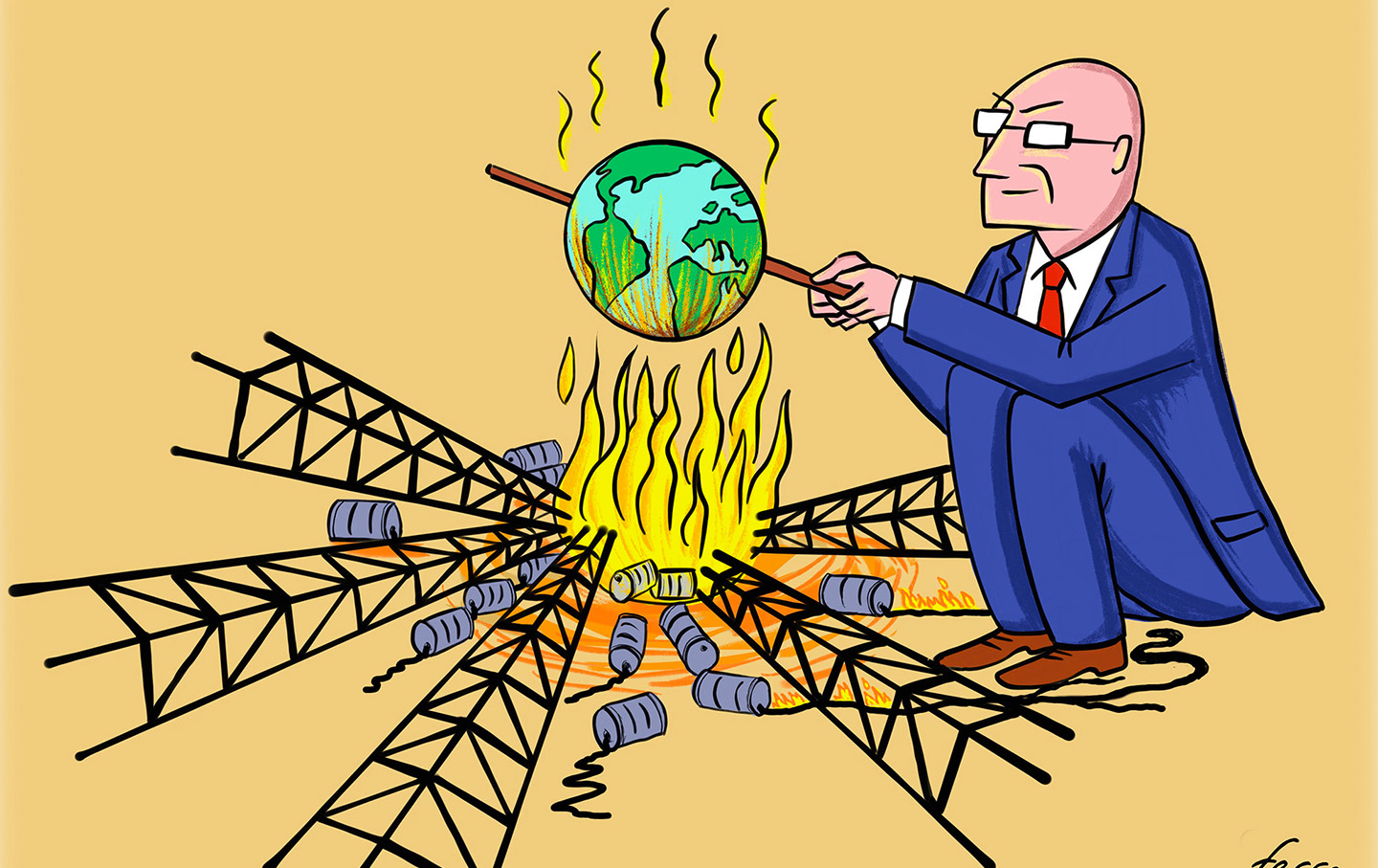
Global Burning Global Burning
The oil industry denies climate change, opposes regulations, and significantly contributes to the environmental crisis.
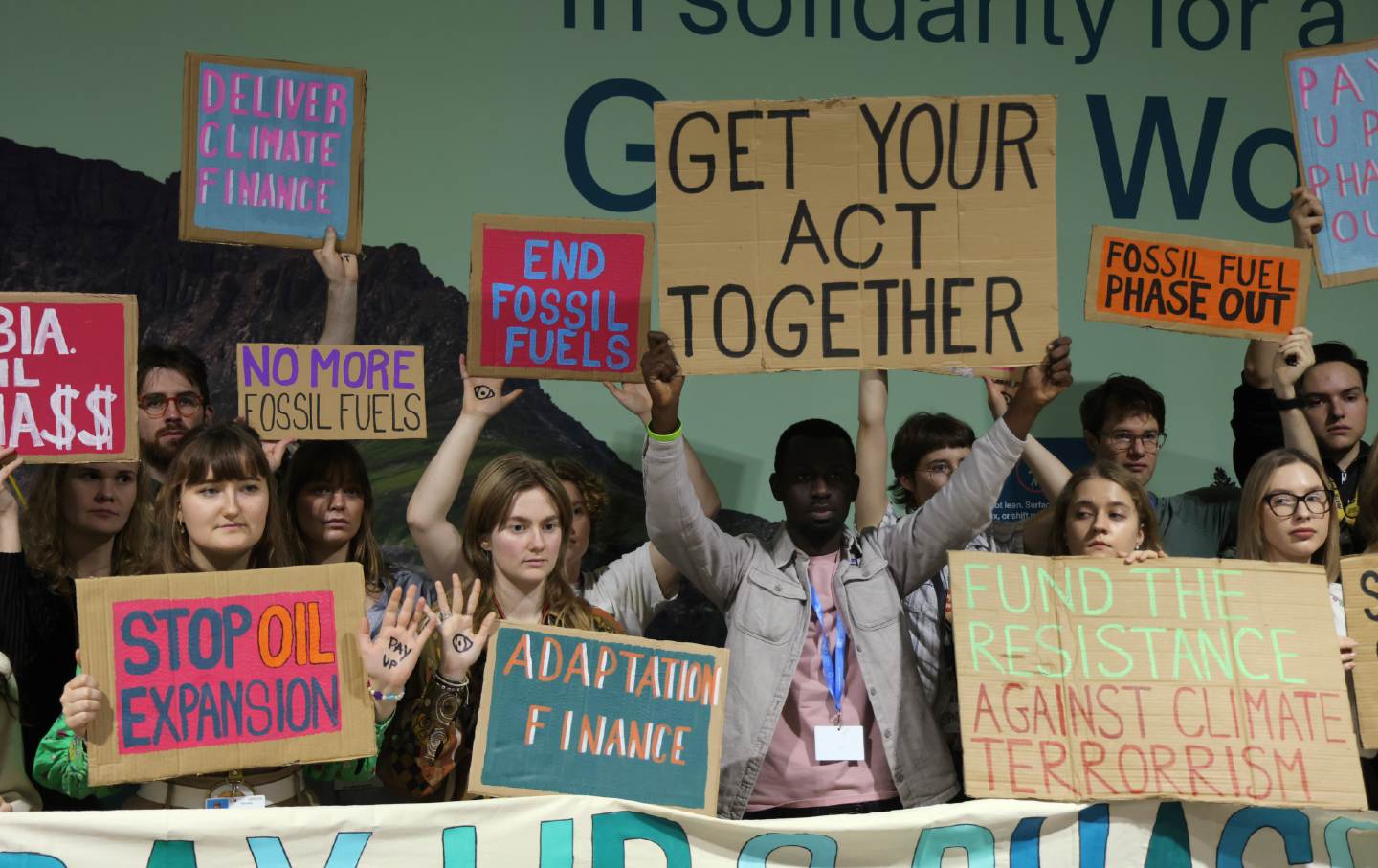
The “Worst COP” Concludes With a “Heartbreaking” Climate-Finance Deal The “Worst COP” Concludes With a “Heartbreaking” Climate-Finance Deal
Activists say the climate agreement effectively signed away the 1.5-degree Celsius target—”our only real chance to safeguard humanity’s future.”
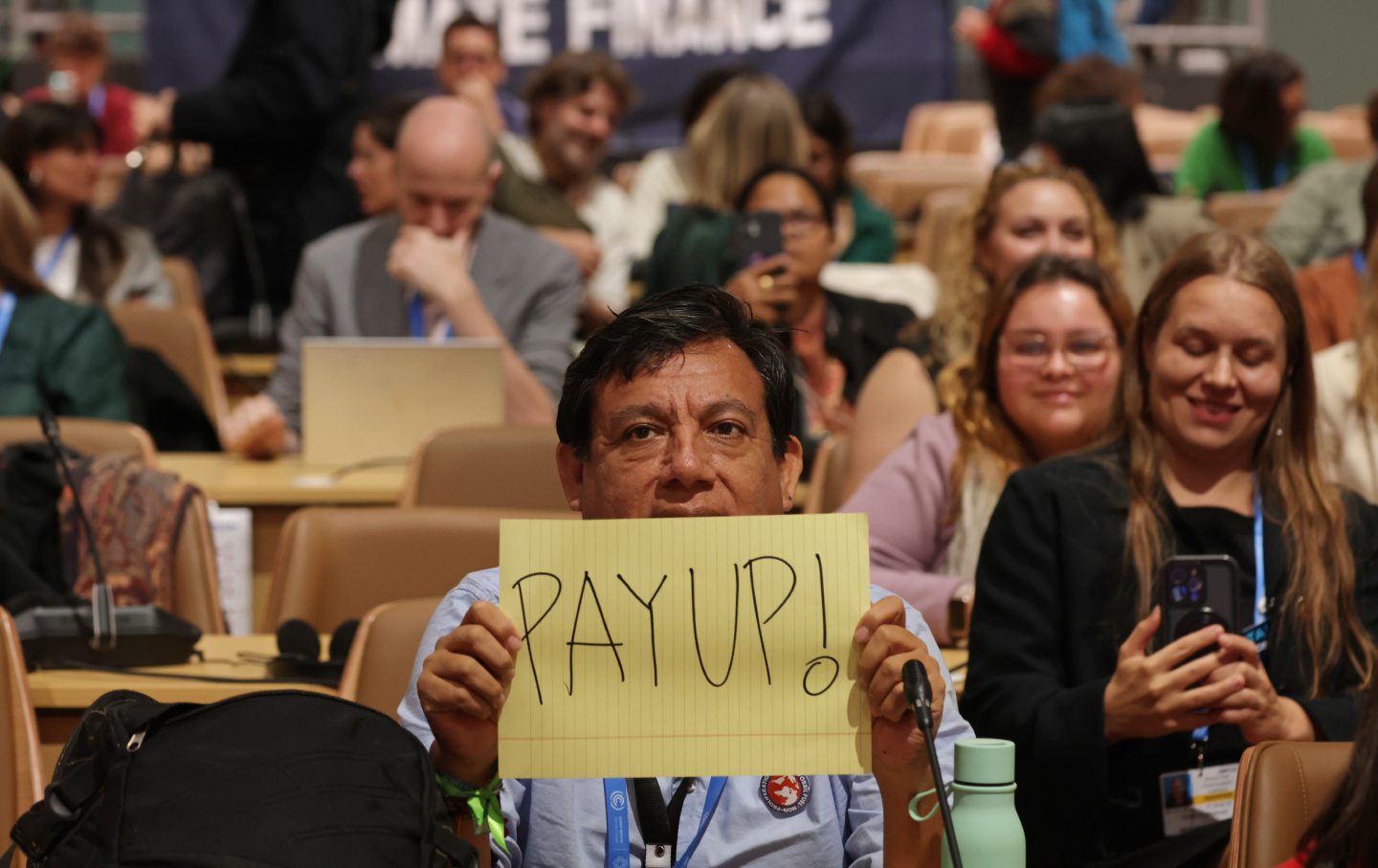
Rich Countries Must Pay Up or Humanity Will Pay the Price Rich Countries Must Pay Up or Humanity Will Pay the Price
The climate activist Lidy Nacpil says the climate bill owed to developing nations is in the “trillions, not billions.”

Climate Change Is the Real National Security Threat Climate Change Is the Real National Security Threat
In the wake of Hurricanes Helene and Milton, it’s clear we’re defending against the wrong perils.


